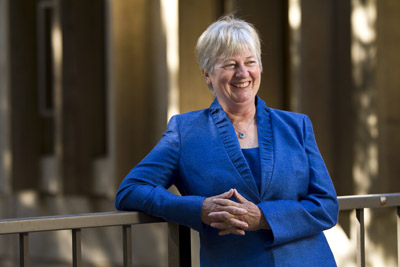We are still awaiting resolution on the UC budget for academic year 2015-2016. Much will depend upon negotiations between Governor Brown and UC President Napolitano. In addition, other relatively important sources of income locally are uncertain. The final budget will probably not be clear until the end of June. However, there are a few points that we can clarify.
Governor Brown has proposed a 4 percent increase in state funds to UC. Because state funding now makes up less than half of our core budget (tuition makes up most of the rest), it equates to less than a 2 percent overall increase and barely keeps up with inflation. Our basic mandatory costs alone are increasing at a faster rate. Mandatory costs include negotiated salary increases, faculty merit increases, benefit increases including retirement and health care, utility costs, and the cost of deferred maintenance. There are few ways to avoid these increases and even the remaining options would only forestall partly and temporarily the yearly increase. Adding in modest investments for high priority areas – employee compensation, rebuilding faculty lines, restoring teaching assistantships, student services, and graduate support – result in total costs increasing at a rate closer to 5 percent.
UC Santa Cruz has few options to increase revenue to cover the gap. We can increase the number of students who pay the out-of-state portion of tuition. We can increase the number of total students to the limits of our Long Range Development Plan. The former will bring global contacts for all our students along with additional funding. The latter would have to be managed without proportional increases in faculty and staff. We can also expand Summer Session, which generates income while helping students graduate more quickly. Our budget projection assumes a combination of these efforts will close about one-half of the gap.
The UC system has proposed a budget in which there are tuition increases of up to 5 percent annually. Roughly 1.7 percent of this increase is dedicated to financial aid, leaving 3.3 percent to support campus operations. Coupled with the state funding increase and our own efforts to increase revenue, the resulting shortfall for UC Santa Cruz would be about $3 million. Without a tuition increase or additional state funding to cover the same amount, our shortfall would be about $7 million. Again, this is the likely annual scenario for the next few years.
At this point, we do not plan to implement permanent budget cuts for 2015-2016. Unless there is a confluence of bad outcomes, we will try to handle the shortfall in the coming year from non-permanent funds. This means, however, that the following year, 2016-2017, we will have to accommodate two years of permanent budget cuts.
UC budget questions remain unresolved



